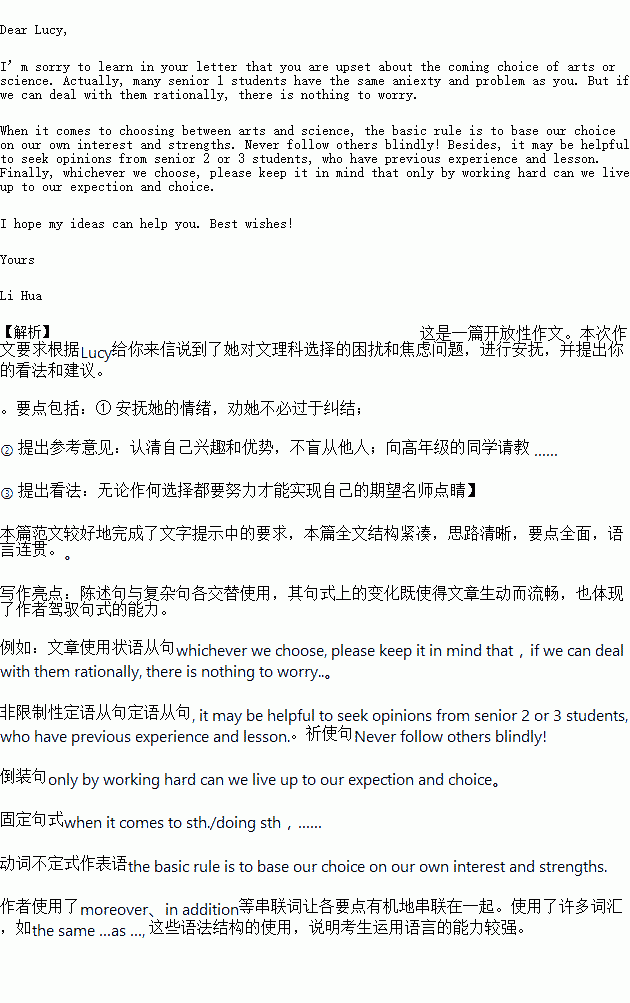题目内容
临近期末,高一同学即将面临着文理分科的选择。假定你是李华,你同学Lucy给你来信说到了她对文理科选择的困扰和焦虑。请你给她回信,安抚她的情绪并提出你的看法和建议。
注意:
1. 词数100左右; 书信开头和结尾已给出,不计入总词数。
2. 内容要点:
① 安抚她的情绪,劝她不必过于纠结;
② 提出参考意见:认清自己兴趣和优势,不盲从他人;向高年级的同学请教 ……
③ 提出看法:无论作何选择都要努力才能实现自己的期望。
3. 可以适当增加细节,以使行文连贯。
可能用到的词汇:焦虑anxiety;理性地 rationally;不辜负 live up to
Dear Lucy,
I’m sorry to learn in your letter that you are upset about the coming choice of arts or science. _________________________________________________________________________________________________________________________________________________________________________________________________________________________________________________________________________________________________________________________________________________________________________________________________________________________________________________________________________________________________________________________________________________________________________________________________________________________________________
Yours
Li Hua

